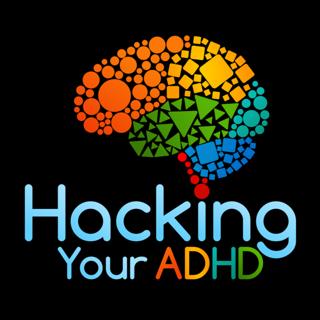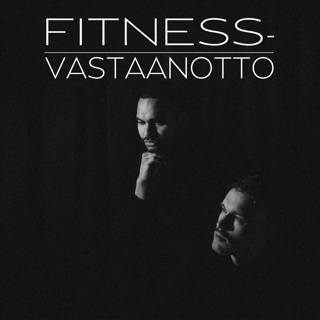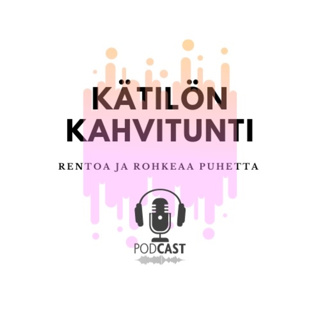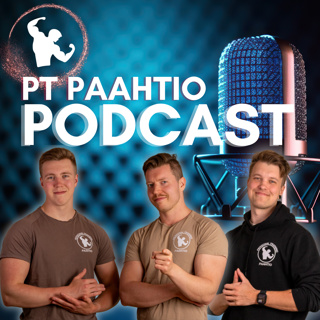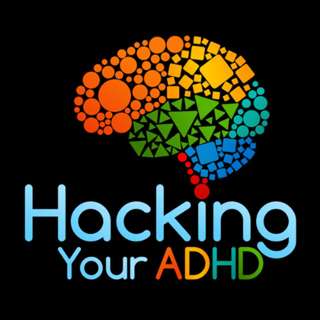
Working With Your ADHD (Updated and Rebroadcast)
This week we're going to be hitting Working With Your ADHD. One of my biggest struggles with ADHD often comes from my belief that if I just tried harder I'd be able to overcome anything that my ADHD was throwing at me, but surprise surprise that just isn't the case. In today's episode, we're going to be looking at why we don't want to just keep trying to do the same things as neurotypicals, why we struggle so much with the idea of trying harder and also some of the strategies that are going to support us the best. Find the show notes at HackingYourADHD.com/WorkingWith Today's Top Tips 1. Pretending that we're neurotypical is exhausting and will lead us to use the wrong strategies for our brains. 2. We shouldn't focus on just trying harder. It's okay for us to just do less, especially when we are staying focus on what matters most. 3. The best strategies for working with your ADHD starts with accepting your ADHD. Make time to educate yourself about what's really happening in your ADHD brain and get involved with the ADHD community.
16 Maalis 202012min

The Surprising Magic of Setting a Deadline
When I was in school, I always wanted to be the kind of student who able to finish a project well before it needed to be turned in. I loved the idea that I could write a paper and still have a week left to polish it. Of course, I was never actually that student. For me to get started on a paper, I had to actually be able to feel that pressure from the deadline building up on me. That usually meant that I was mostly working on papers the night before - I'm sure a lot of you can relate. Since I was still able to get good grades with this strategy, I never really changed it - but I always wished that I wasn't always riding by the seat of my pants. Despite having a good track record, there were times that I missed those deadlines. And a funny thing about it was that I always wanted more time to write my papers. In my brain, if the deadline was pushed farther out I would have had more time to start, and yet experience has taught me that it really didn't matter how much time I was given to complete a paper. Given a week or month, I would still procrastinate until the last minute. When those deadlines were moving in on me, I was able to focus like no other. The time pressure allowed me to block out all those other distracting ideas vying for my attention. Today we're going to be exploring how we can use this time pressure to complete those nagging tasks that we otherwise might not get done and also those things we want to do but just can't seem to prioritize. We'll also be looking at better ways to set deadlines so that we can follow through with our intentions. Check out the show notes at HackingYourADHD.com/deadlines Today's Top Tips Time pressure from deadlines allows us to focus on the tasks in front of us and distill our work down to the most important parts. When setting deadlines we want to make sure that they are relevant to either us or the project. A great way to do this is through accountability and getting someone else to check in on your progress. Deadlines need to be realistic if we plan on meeting them. Time blindness can make it hard to know how long something is actually going to take, but if we break down our projects into chunks we can work on hitting milestones with mini-deadlines.
9 Maalis 202015min

Getting off the Hamster Wheel (Before You Burnout)
Exhausted, empty, overloaded, unable to cope - these are some of the words I'll find myself using when I'm feeling burned out or on the path to burnout. We tend to find ourselves in burnout after prolonged periods of stress - it isn't something that sets in all at once. It isn't that we finally have a straw that breaks the camel's back, instead we just eventually find ourselves waking up one morning and realizing we just can't even. We find that we've lost our passion and drive for everything in front of us. We might still find ways to be productive but we tend to be robotic about it and it just drains us more and more. Burnout is hard. Today we're going to start out by discussing what burnout actually is and I'm also going to talk about some of the times I hit burnout. We're also going to be looking at what we can do to prevent burn and then what to do if we still hit burnout anyways. For full show notes go to: HackingYourADHD.com/burnout Today's Top Tips Burnout consists of three parts - exhaustion (both mental and physical), loss of meaning in our work, and a feeling ineptitude. Burnout is a slow grind and we've got to pay attention to why we're feeling unmotivated when doing tasks we normally enjoy. We want to prevent burnout by setting healthy boundaries around our work, prioritizing self-care, and remembering to take time off. Not comparing ourselves to others and accepting that our ADHD makes things hard will also help us with not feeling like we're so far behind everyone else. If we do hit burnout, we need to reassess what are needs are and identify what was causing us to burnout. Take sometime off and figure out what really matters to you. We often hit burnout when our rewards don't match our efforts.
2 Maalis 202015min

How to Create More Effective Reminders
When you've got ADHD making reminders is a given. There's just too much going on in any one given day for me to keep track of it all and without reminders I know I'm going to drop the ball somewhere. I've got reminders for big things like when I need to leave to pick up my kids from school and little things like having a cup of tea in the evening but not too close to bedtime. So when I get told I just need to create a reminder to remember something I just want to shout that I already am using a lot of reminders. A big problem with a lot of reminders is that they just aren't effective at getting us to do the things they are supposed to be reminding us of. Today we're going to be exploring the ways that we can make better reminders so that we're actually following through on them. We'll be looking at what we're creating reminders for. How and when we are getting those reminders and also look at how we are creating our system of reminders. Find the full show note at: HackingYourADHD.com/EffectiveReminders Today's Top Tips The most important aspect of a reminder is having it delivered when you can do something about it - you can do this by thinking through the context of a reminder. If you need a reminder at work make sure you are getting it when you are at work. Reminders are great for reminding you of things, but not for doing unscheduled tasks. Leave projects on your to-do list and actually schedule a time for them instead of creating a reminder that you are never going to do. Reminders can either be short-term or long-term but regardless of what kind of reminder you are creating you want to make sure you are giving yourself enough information to follow through on what you were trying to remind yourself about. Create a combination of physical and digital reminders so that you can get the most out of your reminder systems. Physical reminders tend to be faster to set up but digital reminders can be more robust in how they are reminding you.
24 Helmi 202016min

Life Lessons From Video Games
Talking about video games so much last week got me thinking about games a lot and so I ended up getting a new game for myself called Stardew Valley. The game was originally released in 2016 but because it was so popular it has been released for a bunch of other systems - I got my copy on the Nintendo Switch. In Stardew Valley you escape the hustle and bustle of the city by moving to a farm you inherited from your grandfather. And then the gameplay is basically just running your farm. Clearing your land. Cutting down trees. Planting crops. Watering them. Talking to people in town. Upgrading your farm. I'm simplifying but honestly, the gameplay is pretty straight forward. I know, that doesn't sound all that engaging and yet I've gotten hooked on this game. And so have thousands of other people. Last week we spent some time discussing specifically why the ADHD brain can latch on to video games so well - this week we're going to veer into specifically how games can easily get me to do things that essentially are boring - like watering my crops - and trying to figure out how we can apply that to real life. For the full show notes go to: HackingYourADHD.com/VideoGameLessons Today's Top Tips Operant conditioning is a learning process in which the strength of a behavior is modified by reinforcement or punishment. We can use what we know about operant conditioning to help us modify our behavior by figuring out the right rewards and punishments we need to complete tasks. Video games make it incredibly easy for us to pick them up and play - for anything else in our life that we want to do more of we should reduce the steps it takes to start. Video games don't punish us harshly for messing up - in fact many video games make it easy to restart after we fail making it easier for us to learn from our mistakes. If we want to fail well in real life we've got to accept that we are going to screw up sometimes and figure out easy ways to dust ourselves off and try again.
17 Helmi 202015min

ADVGD: Attention Deficit Video Game Disorder
I've played video games since before I was able to read - although that statement loses some of its weight once you find out that I didn't learn to read until I was in 4th grade - you know, dyslexia and all. Nonetheless, video games have been a part of my life for a long time. I mean, games are so ingrained in me that while I am writing this, I am listening to video game music - it's excellent for creating a relaxed focus. Video game music was specifically designed to help with attention - I'll link to some of my favorite game soundtracks in the show notes. Today we're going to be talking about why video games can engage the ADHD brain so well and how that can lead to video game addiction. We're also going to be discussing some of the more positive traits of video games as well as discussing some ways that we can cut back on how many video games we play. Check out the full show note at: HackingYourADHD.com/videogames Today's Top Tips Video games engage our brains through instant feedback and making us feel successful. Video games can be a great tool for learning and for your social life. We want to set sensible limits on video games in our lives - not all games are created equally, so choose what you play wisely. Be wary of the games you install on your phone. Game Addiction can be defined as problematic and compulsive use of video games that results in significant impairment in your life - if you're seeing signs of video game addiction in your life or you simply need help quitting playing so many video games I'd like to urge you to go check out GameQuitters.com
10 Helmi 202018min

ADHD in the Gym
This week we're going to be jumping - yeah, jumping because we're talking about exercise. I hope you're ready for some Jazzercise - but if that's not your groove I've got some other options for you as well. Somewhere in our heads, we all know that exercising more is something we "should" do, but it feels like the easiest thing in the world to put off. I mean just because when I look out my window and I can see it's raining doesn't mean I need to stay on my couch right now. In today's episode, we're going to be learning some of the reasons exercise is great for our ADHD brain. How we can work on making it easier to fit exercise into our schedules so that we actually do it, some different ways we can get our blood flowing and our hearts beating. And finally a few things we can do to make sure that we are keeping up with our routines. Find the full show notes at: HackingYourADHD.com/ADHDGym Today's Top Tips Exercise is great for our ADHD brains by increasing our levels of the neurotransmitters dopamine and norepinephrine. You want to try to get in 20-30 minutes of exercise a day, but if you're just starting out make sure that you're easing into it to avoid burning out. Find a type of exercise that you find fun and switch it up sometimes. A great way to do this is through sports and classes. Build-in some accountability for your exercise routines to make sure that you keep them going.
3 Helmi 202017min

How to Make your Smart Phone ADHD Friendly (Part 2)
This is the second part of the series on how to better manage your smartphone with your ADHD - you don't have to have listened to part 1 to listen to this episode, but if you like this episode I'd definitely recommend going back and listening to last week's episode as well. In that episode, we covered how we can limit the distractions that our smartphone can present and also how to make it easier on our ADHD brains when we're setting up our smartphone. This week we're going in a bit of a different direction - while smartphones can be easily distracting and endless entertaining, they also provide us with some great tools to help us manage our ADHD. In this episode I'm going to be discussing a number of the apps I use to help me navigate my day - since I use the iPhone that means most of the apps I specifically discuss are going to be iPhone apps; however, I do try and provide alternatives for Android. Find the Full Show Notes at: HackingYourADHD.com/ADHDPhone2 Today's Top Tips 1. Make use of reminder apps on your phone - make sure to use lots of different sounds and to create recurring reminders for things that you need to be reminded of frequently. 2. Use your calendar as a reminder app as well - for important events make sure to have reminders well in advance so that you can plan for them ahead of time. 3. Get a good note-taking app for your phone and create a reminder to also look at the notes that you take throughout the day or week. 4. Take advantage of shortcuts on your phone so that you can do complicated tasks without getting distracted.
27 Tammi 202015min
